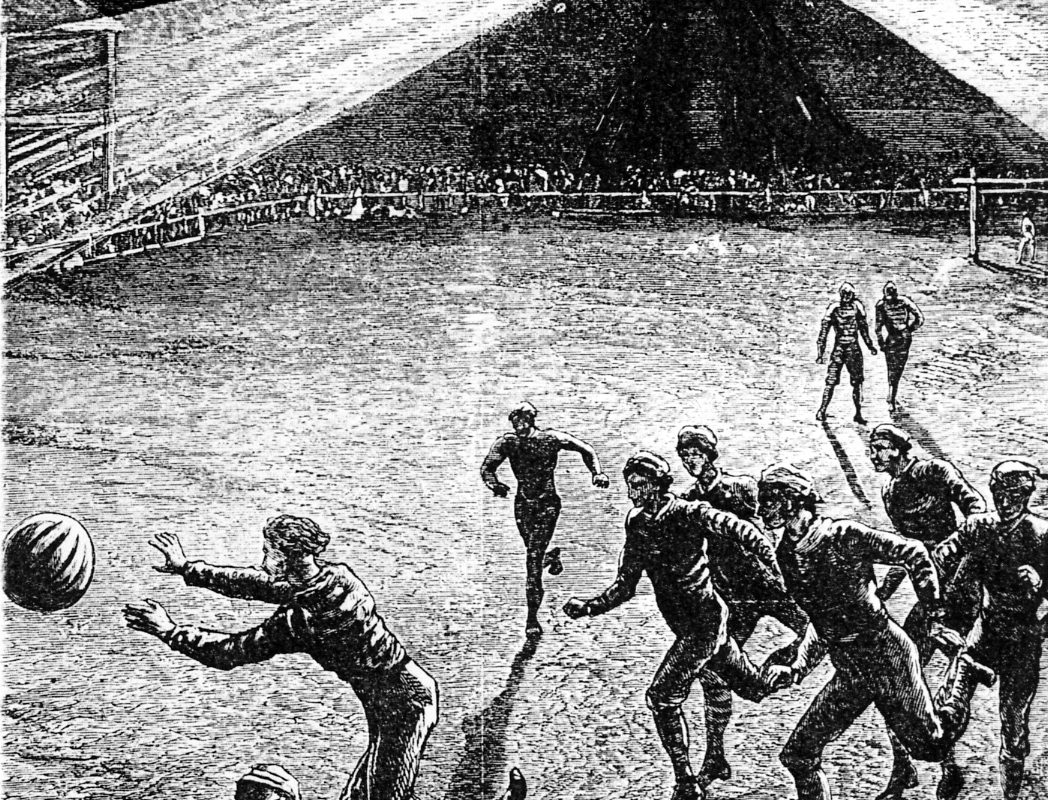
First floodlit football match at Bramall Lane. Source: Picture Sheffield.
Charles Stokes was a dentist by profession but played a vital part in the formation of both Sheffield football clubs. At the age of 16 he joined Heeley FC, showed talent as a player, and rose through their ranks to become President of the Club at a time when they were considered one of the best teams in the town.
In 1867, aged 20, Stokes was present at the meeting that confirmed the founding of the Sheffield Football Association and the same year he was on the committee of the Sheffield Wednesday Cricket Club who met in the Adelphi hotel and founded Sheffield Wednesday Football Club. Stokes played in the Wednesday team that won the Cromwell Cup in February 1868, the second oldest football trophy in the world, and also played a key part in securing Wednesday’s first ground at Olive Grove.
Stokes became a member of the Bramall Lane Bowling Club in 1869 and was invited to join their Ground Committee in 1875. He witnessed Bramall Lane stage Sheffield’s first ever FA Cup Semi Final, Preston North End v West Bromwich Albion on 16 March 1889 and with an attendance of well over 22,000, the then colossal profit of around £500 was made. Seeing the potential for a new Sheffield professional club to play full time at Bramall Lane, it was Stokes’ enthusiasm that was instrumental in calling a special meeting in March 1889 at which, by a majority of one, the Ground Committee decided to form Sheffield United Football Club.
Stokes’ importance to Sheffield United was recognised when he became the Chairman of the Football Club, and it is fitting that his tenure saw United win the League Championship and two FA Cups. He retained his position as Chairman until his death in 1913. He was buried in grave R 145 in the Nonconformist area of the Cemetery.
You can find out more about the history of football in Sheffield in the self-guided trail Founding Football. Charles is also included in the Sheffield General Cemetery publication Post Mortem which is about the history of healthcare in Sheffield and has biographies of those who worked in a range of clinical and allied professions.



